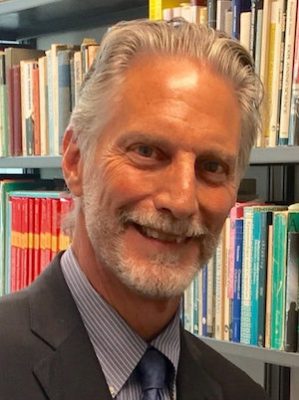Dana Zeidler is a Distinguished University Professor in Science Education at the University of South Florida’s College of Education. He also has served as Distinguished Visiting Professor of Science Education, Ewha Womans University, South Korea; Honorary Professor of Science and Environmental Studies, Hong Kong Institute of Education; and Honorary Professor of Science Education, Beijing Normal University.
 Zeidler’s international research program on Socioscientific Issues takes a sociocultural approach to teaching and learning, exploring how moral and ethical issues can foster epistemological sophistication and character in pursuit of scientific literacy.
Zeidler’s international research program on Socioscientific Issues takes a sociocultural approach to teaching and learning, exploring how moral and ethical issues can foster epistemological sophistication and character in pursuit of scientific literacy.
Describe your current roles and its responsibilities.
In addition to being the Distinguished University Professor in the College of Education, I am coordinator for USF’s science education Ph.D. program. I am also the immediate past co-editor of the Journal of Research in Science Teaching, a top-tier (by impact) global research journal in our field. I’ve authored more than 125 peer-reviewed journal articles, and I’ve served as series editor for 19 scholarly books and as President of the National Association for Research in Science Teaching. I also co-edited the Handbook of Research on Science Education (3rd Edition).
How did the School of Education prepare you for this role?
SOE provided me with an exceptional foundation in statistics, qualitative research, philosophy and sociology of education, developmental psychology, and, of course, my major: science education.
Equally important, SOE granted me wide berth in my dissertation topic. This was the beginning of a fruitful international research program on how moral and ethical issues in science can be leveraged to engage students in conceptual understanding of scientific literacy, facilitate epistemological development and forms of discourse, and develop character in the pursuit of social justice. This is now known as the Socioscientific Issues (SSI) framework and is recognized globally.
What current trends do you see in your specialty and how are you addressing them?
In science education, there has been a shift toward recognizing the sociocultural factors that facilitate teaching and learning.
Which professors stood out for you most as a student at SOE?
Without a doubt, professors Thomas F. Green, former Chair of Cultural Foundations of Education, who served on my dissertation committee, and Larry E. Schafer, who was my major professor.
Make a pitch for SOE—why should a prospective student choose the School of Education?
At the graduate level, SOE always has been very supportive of students with respect to developing their own, original research programs. SOE faculty are exceptional scholars, tempered by insightful awareness of the practical realities and concerns of K-12 and higher education. Students will be able to tap the rich resources of a diverse faculty and carve a meaningful path that will impact their schools and students.
